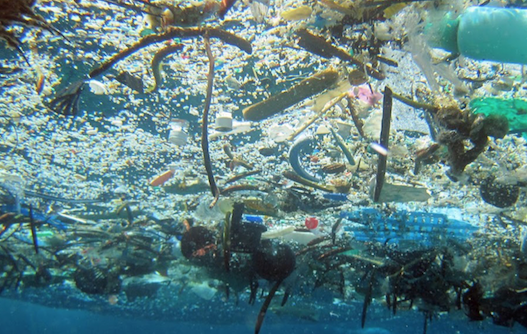By Allison Shafritz ’15
Everybody knows the common phrase “Reduce, Reuse, Recycle.” It’s a mantra that kids learn from a young age and is repeatedly used to advertise the rules of recycling. But not everybody actively thinks about the slogan as they proceed with daily activities. Increasing recycling rates is primarily about behavior change, so if we could get more people to really think about “Reduce, Reuse, Recycle” on a daily basis, waste would be drastically reduced. And I think we have reached a point where most people agree that recycling is a good thing; it isn’t a controversial topic with people fighting at the picket line. Even so, in a typical day, the average American generates 4.4 pounds of solid waste—that adds up to almost a ton of trash per year! This means we need to rethink “Reduce, Reuse, Recycle” and put those words into action.
Recycling is something I have been involved withsince high school, when the Environmental Club decided to revamp the school-wide recycling program. Prior to this, my school essentially dumped all waste into one truck and brought it to the landfill. While jumpstarting this program, I realized how much of our waste is actually recyclable material; the amount we could have saved by recycling sooner is astounding. If more households, campuses, and businesses around the country implemented successful recycling programs, we would make huge strides towards creating a more sustainable planet. The EPA estimates that increasing the nationwide recycling rate from 28% (our current rate) to 35% would reduce greenhouse gas emissions by about 10 million metric tons of carbon equivalent.
There is usually a moment or set of events that triggers an individual’s interest in something. For me, my interest in recycling and reducing plastic use was triggered by learning about the Great Pacific Garbage Patch. This “Pacific trash vortex” is comprised of two separate masses of garbage floating in the Pacific Ocean; one is near Japan, and the other is in between California and Hawaii. They are primarily made up of extremely small plastic particles called microplastics, and 80% of the debris is the result of human activity in North America and Asia. Learning about the garbage patch was eye-opening for me because I grew up on the coast and consider the ocean to be an extremely valuable resource.
Since I started working at the Sustainability Office the summer after my sophomore year, I’ve had the opportunity to work on a few different recycling projects at Colgate. I know that increasing recycling rates at Colgate does not directly connect to the garbage patch floating in the middle of the Pacific Ocean. However, I do believe that increasing awareness plays a pivotal role in both of these issues. Increasing awareness can lead to behavior change, which can lead to environmental action, which can lead to policy reform, and so on. That’s why I have been invested in recycling programs at Colgate over the past few years.
There are so many opportunities to get involved with and expand recycling programs on campus. Although Colgate is a small community, we still generate a lot of waste and ultimately, recycling comes down to the students. Although Recyclemania (an annual recycling competition) does not start until the spring, it is never too early to begin! If we do not collectively make a change in our recycling behavior, we will never be as sustainable as we can be. So next time you’re holding a plastic bottle or a pizza box, take a moment to think about which bin you should be using.



-0- This photos! I see it’s feel so very sad.